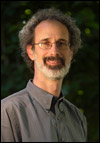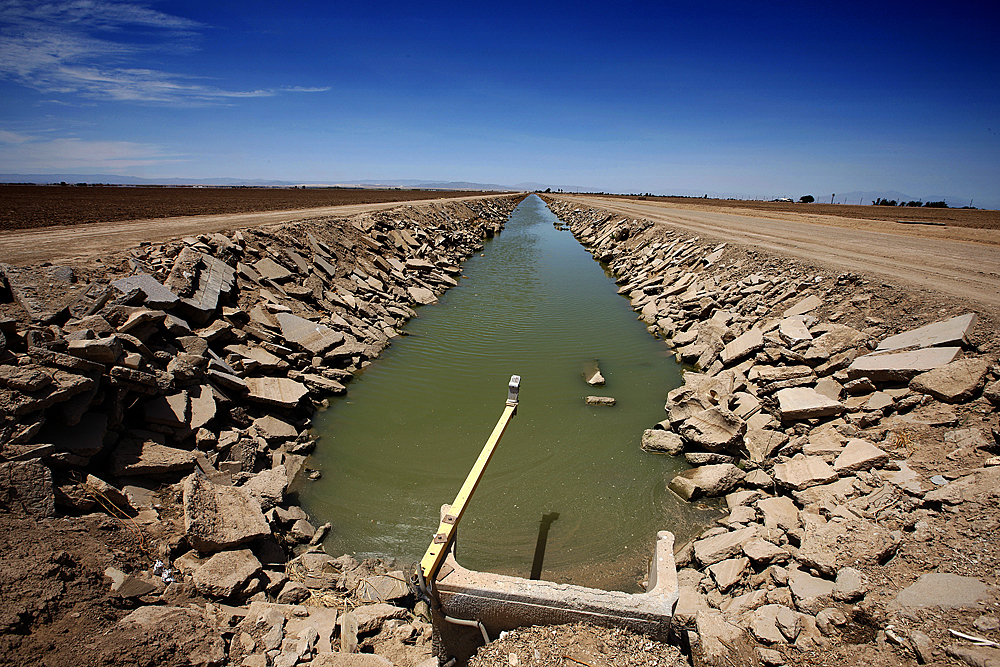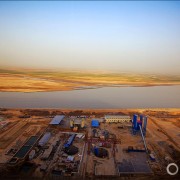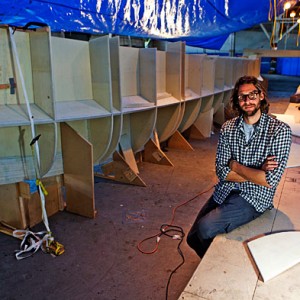Peter Gleick: Destroying our Libraries: A Water Story
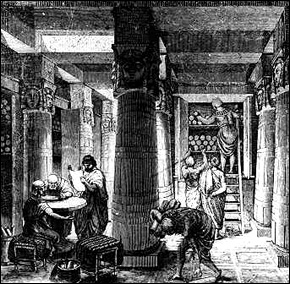 In 49 BC, parts of the priceless Library of Alexandria burned, when Julius Caesar set a fire to the Egyptian fleet in the harbor and the fire spread. Portions more burned or were destroyed by barbarians over the next few centuries as Alexandria fell from grace as the world’s leading center of knowledge and learning. Today, the destruction of the Library is considered one of the worst tragedies of ancient times.
In 49 BC, parts of the priceless Library of Alexandria burned, when Julius Caesar set a fire to the Egyptian fleet in the harbor and the fire spread. Portions more burned or were destroyed by barbarians over the next few centuries as Alexandria fell from grace as the world’s leading center of knowledge and learning. Today, the destruction of the Library is considered one of the worst tragedies of ancient times.
Well, the barbarians are back.
One of the most remarkable library treasures of the University of California system is the Water Resources Center Archives, a unique and irreplaceable collection of current and historical scientific, political, educational, and personal materials on California, western US, and global water history, science, and policy. The WRCA is at UC Berkeley. In a stunningly shortsighted, self-serving, and disgraceful move, those responsible for the Archives, in particular, the Agricultural and Natural Resources Division (headquartered in Oakland), have announced that the Archives may be shut down in June, unless they can find some other University home for it willing to cover the costs.
The move is ostensibly for “budget” reasons, but the budget involved is pathetically small — on the order of $300,000 a year, supporting four staff. Just for comparison the top administrator of the ANR division receives salary and benefits on the order of $400,000 a year (yes, for a single person). In fact, the budget crisis is being used as an opportunity (or excuse) for ANR to restructure in a way to support new initiatives that apparently don’t require the kind of critical fact- and information-based services that the Archives provides.
The WRCA serves the entire state: not just students, faculty, and staff of the University of California, but hydrologists, engineers, historians, authors, journalists, lawyers, scientists, and the general public — anyone with an interest or stake in water issues (no library card needed!!). Shutting the Archives would serve the purpose of those who would seek to hide the unseemly history of California water — in the files of the archives are the stories, histories, and dirty linen of how we got where we are today. But the Archives is also one of the only places where real data on water — most of which is not on the Internet — can be found. I’ve used the Archives for over 25 years to find materials not available anywhere else.
Water Numbers: The WRCA collection consists of more than 200,000 technical reports, 1,500 specialized newsletters, 5,000 maps and videos, more than 200 manuscript collections, 25,000 black-and-white photographs that document the development of water in California and the West, and more than 45,000 coastal aerial photographs. Most of this stuff isn’t available on the Internet. The best, oldest stuff is not digitized. It is just priceless information and history.
A colleague of mine notes that he believes not a single library was closed down in the entire State of California during the Great Depression. The dismantling of the University of California system is being done under our noses, one piece at a time, in parallel with the progressive destruction of what used to be the best university and research system in the world. As Joni Mitchell said, “you don’t know what you’ve got till it’s gone.”
Well, it’s going.
Want to do something? Write, immediately, to the Division of Agriculture and Natural Resources in Oakland, California (to Dan Dooley, Vice President; and Barbara Allen-Diaz, Associate Vice President), asking for them to stop being penny wise and pound foolish, in your own words. The WRCA at Berkeley should be kept open to the public and researchers, and its invaluable materials must be kept in a place where people will use it.
[A disclosure: I have been serving on the Archives Board of Directors for the last few months — an unpaid, volunteer position that I took on as a public service because of the unique and invaluable nature of the library.]
Peter Gleick
Dr. Gleick’s blog posts are provided in cooperation with the SFGate. Previous posts can be found here.

